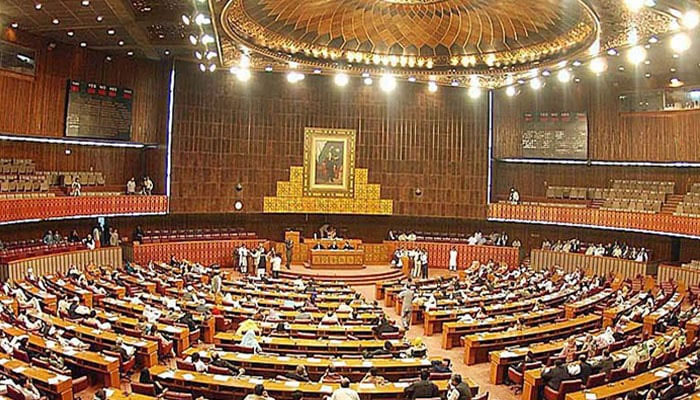How governance hurdles impact growth
LAHORE: Effective governance is essential for economic stability and business growth. Pakistan faces significant governance challenges, leading businesses to adapt strategies to operate within this environment, though this increases operational costs and often deters foreign investment.
Governance encompasses the systems, processes, and structures that guide the management, oversight, and control of an organization or a country. In an economy, strong governance ensures resources are used efficiently, institutions are accountable, laws are enforced fairly, and citizens’ and stakeholders’ rights are protected. For businesses, governance involves frameworks such as corporate governance, which promotes accountability, transparency, risk management, and compliance with legal and ethical standards.
Pakistan has struggled with governance issues across various fronts. Rule of law is a major concern, with reports indicating selective law enforcement and a slow, inefficient judicial process. High levels of corruption -- particularly in customs, law enforcement and bureaucracy -- lead to revenue loss and inefficiencies in public services. Mechanisms for government and corporate accountability are weak, with limited transparency in financial and administrative matters. Inconsistent regulatory policies, particularly regarding tax enforcement, environmental regulations, and business licensing, undermine public trust and economic performance.
The private sector in Pakistan navigates these governance challenges in various ways. Businesses often rely on informal networks and relationships to expedite processes and circumvent bureaucratic hurdles. Some companies implement internal governance practices that align with international standards, helping them maintain credibility and attract foreign partners despite local governance issues. Foreign companies frequently partner with local firms to navigate the regulatory landscape and minimise risks associated with governance gaps. Many businesses diversify their activities across regions or sectors to mitigate risks from unpredictable governance or regulatory changes. Unfortunately, companies often feel compelled to pay facilitation fees or bribes to expedite services or secure approvals, particularly in customs and import/export operations.
In regional governance comparisons among China, India, Bangladesh and Pakistan, China stands out with a robust governance framework in terms of regulation enforcement, economic stability and regulatory oversight. However, state control and limited political freedom are notable aspects. China ranks higher in anti-corruption efforts and government accountability within its framework.
India performs relatively well with democratic governance, rule of law, and regulatory oversight, though it struggles with corruption and bureaucratic inefficiency. While India’s governance is generally more transparent than China’s, it is less efficient due to bureaucratic red tape. Bangladesh has made progress in improving governance, especially in recent years, though it still faces challenges with corruption and regulatory enforcement. Governance in Bangladesh has improved in economic management and social sector development.
Pakistan lags behind these three countries in governance indicators, with persistent issues in rule of law, high corruption, and weak accountability. The country’s governance framework is perceived as less effective and transparent, impacting economic development and foreign investment. Consequently, the private sector operates in a challenging environment, often resorting to compromises that drive up costs and reduce efficiency. Improving governance is essential for Pakistan to bolster its economic position and attract more sustainable investment.
-
 Blac Chyna Reveals Her New Approach To Love, Healing After Recent Heartbreak
Blac Chyna Reveals Her New Approach To Love, Healing After Recent Heartbreak -
 Royal Family's Approach To Deal With Andrew Finally Revealed
Royal Family's Approach To Deal With Andrew Finally Revealed -
 Super Bowl Weekend Deals Blow To 'Melania' Documentary's Box Office
Super Bowl Weekend Deals Blow To 'Melania' Documentary's Box Office -
 Meghan Markle Shares Glitzy Clips From Fifteen Percent Pledge Gala
Meghan Markle Shares Glitzy Clips From Fifteen Percent Pledge Gala -
 Melissa Jon Hart Explains Rare Reason Behind Not Revisting Old Roles
Melissa Jon Hart Explains Rare Reason Behind Not Revisting Old Roles -
 Meghan Markle Eyeing On ‘Queen’ As Ultimate Goal
Meghan Markle Eyeing On ‘Queen’ As Ultimate Goal -
 Kate Middleton Insists She Would Never Undermine Queen Camilla
Kate Middleton Insists She Would Never Undermine Queen Camilla -
 Japan Elects Takaichi As First Woman Prime Minister After Sweeping Vote
Japan Elects Takaichi As First Woman Prime Minister After Sweeping Vote -
 King Charles 'terrified' Andrew's Scandal Will End His Reign
King Charles 'terrified' Andrew's Scandal Will End His Reign -
 Winter Olympics 2026: Lindsey Vonn’s Olympic Comeback Ends In Devastating Downhill Crash
Winter Olympics 2026: Lindsey Vonn’s Olympic Comeback Ends In Devastating Downhill Crash -
 Adrien Brody Opens Up About His Football Fandom Amid '2026 Super Bowl'
Adrien Brody Opens Up About His Football Fandom Amid '2026 Super Bowl' -
 Barbra Streisand's Obsession With Cloning Revealed
Barbra Streisand's Obsession With Cloning Revealed -
 What Did Olivia Colman Tell Her Husband About Her Gender?
What Did Olivia Colman Tell Her Husband About Her Gender? -
 'We Were Deceived': Noam Chomsky's Wife Regrets Epstein Association
'We Were Deceived': Noam Chomsky's Wife Regrets Epstein Association -
 Patriots' WAGs Slam Cardi B Amid Plans For Super Bowl Party: She Is 'attention-seeker'
Patriots' WAGs Slam Cardi B Amid Plans For Super Bowl Party: She Is 'attention-seeker' -
 Martha Stewart On Surviving Rigorous Times Amid Upcoming Memoir Release
Martha Stewart On Surviving Rigorous Times Amid Upcoming Memoir Release




